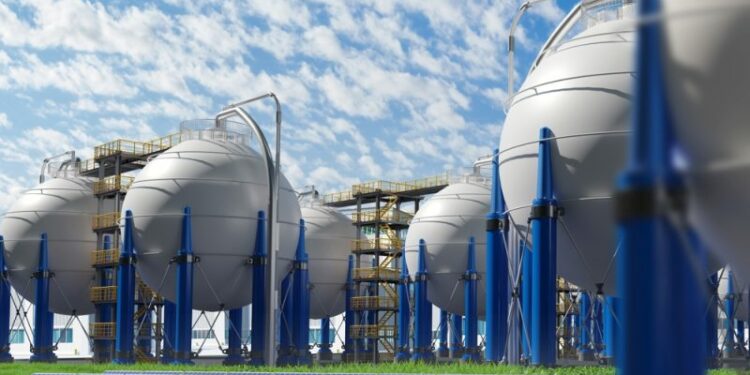Renewable hydrogen and net-zero mobility projects were among the winners of a €4.8 billion grant from the European Commission’s Innovation Fund, the largest funding round since its inception. Despite the new funding, Germany has requested that the Commission adjust the rules for renewable hydrogen.
The 85 winning projects, which promise to help put cutting-edge clean technologies into action across Europe, are located in 18 countries, including Belgium, Denmark, Germany, Greece, Spain, France, Croatia, Italy, Hungary, and Slovakia.
According to the Commission’s announcement on 24 October, this is the first time projects of all sizes, including those focused on cleantech manufacturing, have been chosen.
The grant raises the total amount of support to €12 billion, increasing the number of funded projects by 70 per cent. These cover areas such as renewable energy, carbon management, energy storage, and sustainable transport.
Reaching climate targets
The projects aim to reduce 476 million tonnes of CO2 over 10 years, helping the European Union reach its climate goals, grow its clean technology industry and reinforce Europe’s supply chain resilience.
Maroš Šefčovič, the Commission’s Executive Vice-President for European Green Deal, Interinstitutional Relations and Foresight, described it as “another significant milestone in a pivotal stride towards Europe’s climate neutrality goals.”
Commissioner for Climate Action and responsible for transport, Wopke Hoekstra, said that “new projects in the maritime, aviation and road transport sectors will boost efforts to reach clean mobility.”
The grant agreements will be finalised by early 2025. An additional 64 projects, which need more development, will receive support from the European Investment Bank (EIB) and a new quality label called the STEP Seal.
The next funding round is expected to start in December 2024. The Innovation Fund alone, supported by the EU’s carbon trading system, has provided €7.2 billion to over 120 projects since 2020 to help Europe reach its climate goals.
Focus on renewable hydrogen
Earlier in October, six projects, winners of the first EU-wide renewable hydrogen auction, signed their respective grant agreements, advancing them towards implementation.
The auction, part of the European Hydrogen Bank, uses EU carbon trading revenues to support renewable hydrogen production. The funded projects are based in Spain, Portugal, Finland and Norway.
They will receive fixed payments per kilogram of renewable hydrogen produced, but payments will only begin once production starts. The projects have five years from the agreement date to begin production.
The aim is to produce up to 1.52 million tonnes of renewable hydrogen over 10 years, potentially avoiding more than 10 million tonnes of CO2 emissions. The grants support installations from 35 to 500 MWe capacity.
A second hydrogen auction with a budget of €1.2 billion is expected to be launched by the end of 2024, as the European Hydrogen Bank seeks to boost renewable hydrogen production and investment in the EU.
According to official data, the EU imported €3.9 billion of liquid biofuels in 2023, a 22 per cent drop in value, with a 2 per cent decline in quantity. It exported €2.2 billion in liquid biofuels, which showed a higher increase in quantity compared with value.
China was the largest supplier of liquid biofuels, leading with 36 per cent. It was followed by the United Kingdom with 13 per cent and Brazil with 12 per cent. It was also a main partner in the imports of solar panels.
Tough rules
Despite the high priority the EU has given renewable hydrogen, referred to as “renewable fuels of non-biological origin” (RFNBOs), the new rules that state how it should be produced are stringent.
Based on these rules, which define hydrogen as renewable if produced through electrolysis using renewable energy sources, the Commission announced preliminary approval of the first certification schemes to verify and certify compliance.
Germany’s Minister for the Economy, Robert Habeck, penned a letter to outgoing EU Energy Commissioner Kadri Simson, asking the Commission to adjust rules for renewable hydrogen.
First, Habeck asks for the postponement of the “additionality” rule until 2035, which requires hydrogen projects to use only new, unsubsidised renewable energy starting from 2028. Delaying it would give more time for ongoing projects to secure funding and complete construction.
Second, he asks for the postponement of the “temporal correlation” rule until 2031. Currently, from 2030, hydrogen production must match renewable energy generation on an hourly basis, making it more costly. A delay, argues Habeck, would ease this burden.
Although Germany initially supported these strict rules, Habeck now believes they are too demanding and slowing the growth of renewable hydrogen projects. The minister warns that if regulations are too strict while the industry is still developing, it could hinder its progress.
[Edited By Brian Maguire | Euractiv’s Advocacy Lab ]
Source link : http://www.bing.com/news/apiclick.aspx?ref=FexRss&aid=&tid=671bcec6d9ec4d1eba1ec3238672867c&url=https%3A%2F%2Fwww.euractiv.com%2Fsection%2Fenergy-environment%2Fnews%2Frenewable-hydrogen-projects-win-innovation-grants-germany-requests-rules-delay-to-nurture-sectoral-growth%2F&c=14153372374498197550&mkt=de-de
Author :
Publish date : 2024-10-25 09:22:00
Copyright for syndicated content belongs to the linked Source.


